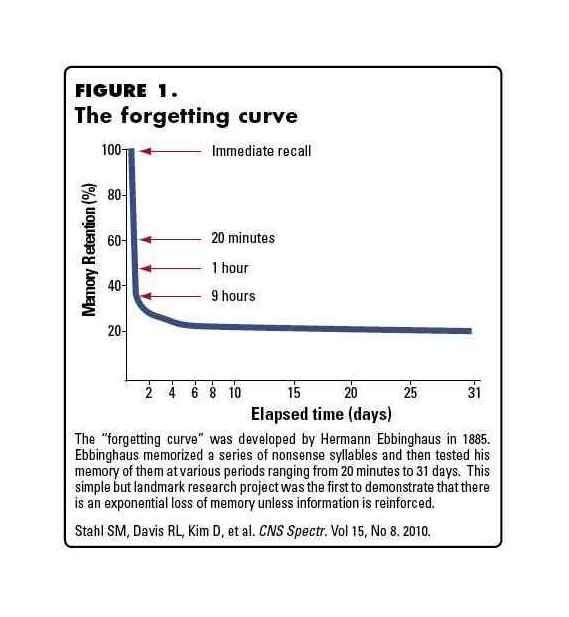Extensive Reading with Spaced Repetition
Share
Spaced Repetition - Fast, but Boring and out of Context
To learn vocabulary there are two major methods, flash cards and extensive reading.
Regular vocabulary training (learning word lists) has evolved to spaced repetition flash card systems. This comes down to learning and remembering all of the words in a relatively efficient way.
However users of the flash card method often complain of boredom and becoming averse to the system. Another problem of this method which may well be the cause of this aversity is that one is trying to fill the brain in an unnatural manner.
Your brain is filled with single unconnected objects that need to be remembered, which will make learning more difficult.

Extensive Reading - Slow, but Fun and in Context
Extensive reading comes down to learning words through encountering them in context while reading.
Because too many unknown words in a text will slow someone down, extensive reading without any immediate translation is only possible through graded readers. But extensive reading has evolved to online texts with google translation readily available, albeit not quite immediate and often out of context.
An important part about extensive reading is the context. Because of this context it is possible to infer the meaning of certain words and also to remember them better. Even unconjugated google translations help.
When you have learned a number of words in a text it's easier to remember them than if they're all separate words.

Extensive Reading versus Spaced Repetition
The trade off between bare extensive reading and spaced repetition flashcards is that with flashcards you will remember more words, but with extensive reading you actually understand them in context and will more easily be reading other texts where those words occur, while students encountering words learned in the flashcard system will not be able to lay the necessary cognitive links to be able to understand them in context or use them in context.
In other "words" (no pun intended), flash cards stuff more facts into your brain, but they're not part of any scheme, while extensive reading kind of builds up a scheme in your brain, with holes where you don't know the words yet, but a scheme nonetheless, much as your brain forms all its knowledge.
You might even wonder if facts are relevant if they can't be applied. But still, it's a trade off between knowing all your words and being able to read in a basic manner. A high school student might choose the first to be able to score, while someone trying to get to the bottom of the language will struggle through the second method because from day one he's actually reading. Actually I think very few people understand the importance of extensive reading, probably because most courses are build around learning small groups of words at a time so most people associate learning with boring practice.

Combinations of Extensive Reading and Spaced Repetition
However, we've shown that the context is very important. All regular courses will include texts, although in a whole course they never amount to more than a few dozen pages. And the latest developments in vocabulary learning methods also try to focus more on context.
Wordclouds and methods that teach words in sentences and that include spaced repetition try to get the context into the flash card system. Research has shown that wordclouds are more effective than a regular flash card method, because of the advantage of learning words in context. Same goes for learning words in sentences which is applied by a number of new systems.
On the other hand, extensive reading that uses a spaced repetition flash card system tries to fill those holes that remain in the scheme. But extensive reading needs to remain fast if it is to be reading and not simply learning all the words in a sentence.
So both methods, spaced repetition flashcards and extensive reading, are moving towards an ideal system incorporating both repetition and context.

Extensive Reading with Spaced Repetition of New Words is Fun
The idea behind extensive reading is that it is much more fun than learning word lists. It is not only more natural to the brain, but reading an interesting text will be much preferable to reading separate words, or even single interesting sentences.
Ultimately extensive reading is the best method to get new vocabulary into your brain, however, the lower the frequency of new words, the more difficult to learn through spaced repetition while reading.
When the meaning of unknown words is immediately given while reading a text (hover over pop-up translation), it is possible to read fast and at the same time absorb a large number of unknown words. When this is combined with repetition of low frequency words in separate practices that include the context again or new context, it adds the speed of learning of the flash card system to the schematic building of vocabulary in context of extensive reading.

Extensive Reading with Spaced Repetition, More Fun, Fast and Better Memory Retention
The primary argument against extensive reading is that it will require a huge amount of text for a certain number of words to be encountered, even if we make sure they are remembered, versus a selective amount where we have flashcards, wordclouds or words learned in single sentences.
To learn 5000 word families you might need 5000-10000 flash cards plus understanding of the grammar. For encountering those 5000 word families while extensive reading you would need to read a 100.000 words.
However the flash card system is based on repeating, and those 5000 word families will have to be repeated ad nauseam. For example 20 times 5000 to remember them all comes down to looking 100.000 times at an individual word out of context so without any hooks for your brain to hold on to. While when doing extensive reading of texts of which the total size is 100.000 words, we are reading 10 unique texts of 10.000 words, for example, and have repeated 3000 out of 5000 word families without having to do any tedious repetition, we might need to do 1500 small repetitions helped by the context of the stories we already read, and we are left with 500 more difficult word families to remember where also we're still helped by the context of the text and for other in context remembering we might be forced to do some extra reading.
So extensive reading with immediate and correct translation and software supporting word repetition speeds up the learning considerably. On top of that the reading is necessary to create the natural language schemes in your brain to use those words to read fluently and recognize them in context.
The next step, listening and writing, builds upon this natural language scheme in your brain, but that's another topic.

